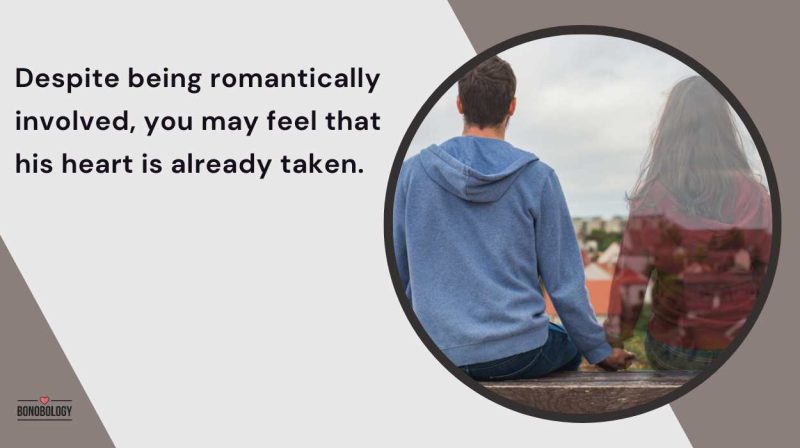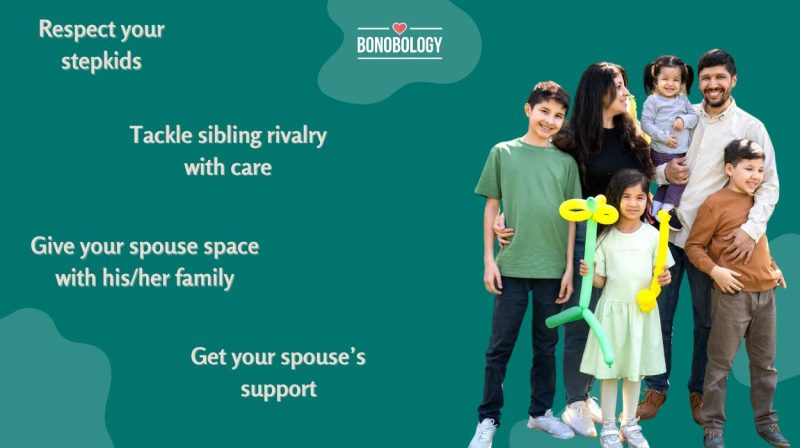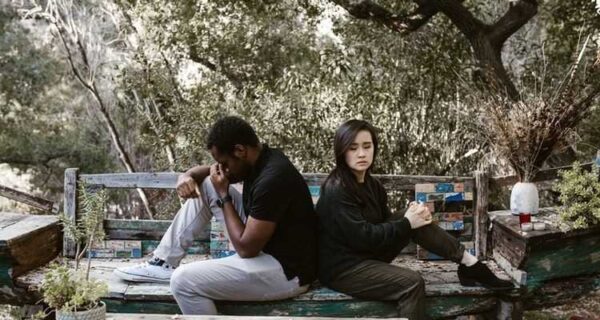Dating a widower is an experience that demands both sensitivity and self-reflection. Of all the complexities in romantic relationships, falling for and dating a widower comes with its own unique emotional terrain. You’re not just getting to know a person but also their grief, their past love, and everything that comes with it. It’s not easy to walk into someone’s life when part of their heart will always belong to someone else. But it’s also not impossible. While many find themselves overwhelmed by the weight of that emotional history, others learn how to navigate it, with patience, clarity, and self-respect. This is one such story. And in the process, it teaches us 21 key lessons about dating a widower, from someone who’s lived it.
21 Lessons I’ve Learned From Dating A Widower
Table of Contents
When I first met Tom, I didn’t think twice about the fact that he was a widower. We met through mutual friends, and the connection was instant. He was thoughtful, funny, and disarmingly honest. A few weeks in, he told me about his late wife, Claire, who had passed away two years earlier. He didn’t talk about her with pity or melodrama. He spoke with love and a sort of quiet acceptance that made me feel like he’d actually processed his grief.
Still, dating him wasn’t without its challenges. There were moments when I felt unsure, like the first time I stayed over and noticed her favorite book still on his nightstand. Or the family gathering where a relative accidentally called me by her name. But Tom didn’t pretend those moments weren’t awkward. He acknowledged them. And slowly, I learned not to take those slips personally.
The biggest shift had to come from me. I had to let go of the idea that love has to be a clean slate. I realized that the presence of her memory didn’t mean the absence of space for me. He made that clear, too, in ways big and small. By showing up consistently, by making plans for our future, by introducing me to his son not as a temporary companion but as someone important.
Related Reading: Am I Moving On Too Quickly After Death Of Spouse—How To Decide
I’m not gonna sugarcoat it. Dating a grieving man can present a unique situation and bring up apprehensions and insecurities. Will he be able to love you the way you deserve to be loved? Or would you be stuck dating a widower feeling second best?
Before embarking on this emotional journey, I understood that every interaction was a delicate dance. I learned early on that establishing a solid foundation meant listening without judgment, giving space when needed, and not rushing intimacy. Whether it was during quiet mornings over coffee or reflective walks in the park, I discovered that patience and open communication were vital. These moments became the cornerstone of understanding not only his grief but also the new life we were trying to build together. Here are the lessons I learned in the relationship:

1. Don’t probe too much
The first and most significant rule when widower dating is to avoid asking too many questions about his wife. At least, let the first few dates pass by without bringing up the subject. Get to know him better and let him open up about his past; don’t get too personal too soon.
On our very first date, I made the mistake of asking him if he still missed his wife. In hindsight, not a great idea. I saw a shift in his body language, and the remaining date went awkwardly. So after that, I refrained from asking detailed questions about his late wife. I realized that when I gently allowed him to open up on his own, our conversations deepened naturally without the pressure of reliving painful memories.
He may come across as emotionally unavailable if you touch a raw nerve too soon and try to access parts of him that he may not be ready to reveal yet. Remember that the grieving process is not linear and takes its own trajectory. Dating after death of spouse is complicated. He could well be grieving his wife’s death and looking to make a fresh start at the same time.
2. Be prepared to listen
Even if you don’t probe too much, be prepared to listen. When dating a recent widower, the way to win his heart is to be open to hearing his past experiences. He might have had a happy marriage, and surviving the death of his wife must have been devastating for him.
It takes immense courage to pick up the pieces and start afresh. If he wants to talk, encourage it. Don’t make him feel like you’re competing with his past relationship. However, if his wife is all he can talk about and you feel as if you’re at the receiving end of emotional dumping you didn’t sign up for, then he’s clearly stuck in the past.
What worked for us was simply sitting silently by his side during moments of sorrow and just holding his hands, even if he didn’t have the exact words to express his feelings sometimes. His willingness to share bits of his past helped me understand his inner world, even when it was painful.
3. Realize that you will be fighting a memory
While it depends on the nature of the relationship he shared with his spouse, on some level, it would be difficult for him to move on. Especially if his loss is a recent one, the presence of his deceased spouse might loom large and cast a shadow on the new relationship as well. Don’t expect him to fall in love too quickly. I often witnessed him pause when a familiar song played on the radio. Rather than feeling sidelined, I began to appreciate these moments as integral to who he was, learning to honor his memories without feeling overshadowed.
Become his ally in his journey of processing and coming to terms with his grief rather than turning it into an ominous word in your relationship. Doing so will help you develop a deep and meaningful relationship with your partner. At the same time, don’t overlook any potential red flags:
- If all he does is talk about his deceased wife and wallow, it’s one of the warning signs that he is still grieving
- He may be looking to compensate for missing physical intimacy, and a rebound relationship/mixed signals is not what you deserve
- Being in a relationship with a widower who isn’t emotionally invested in you may leave you riddled with self-doubt and emotional trauma
4. Tread lightly

To build solid ground, give him time and let the relationship take its own course. Our advice is to take it really slow, step by step. Especially if you fancy an emotionally unavailable widower, you might have to work harder to take it forward. Be patient in the relationship and be prepared to take things forward at a pace he’s comfortable with.
You can avoid a myriad of relationship problems later on if you focus on building trust now. So, if you truly fancy him and see that he reciprocates your feelings, be open to taking things one step at a time. Be mindful of the fact that he is dealing with the setback of surviving the death of his wife, and you need to navigate this situation with compassion and empathy.
In my case, when I first suggested spending more time together with him, I sensed his hesitation. Over time, by moving at a measured pace, we gradually bridged the gap between his guarded past and our budding future.
Related Reading: What You Must Know About Dating A Divorcee
5. Be a good listener and understand his trauma
You probably understand how difficult it is to forget someone you loved deeply. In the case of the death of a spouse, this becomes even more challenging because you feel that you have no control whatsoever. In such a scenario, small triggers can bring back painful memories. These aren’t essentially red flags signaling you to stop. It’s just an outpouring of grief that will settle down over time, or at least become more manageable.
There were evenings when he would recount stories of shared adventures with his late wife. While I felt some jealousy in the beginning, I didn’t express it. Instead, I listened intently, asking gentle questions, which not only helped him process his grief but also deepened my empathy for his journey.
6. Don’t be on the receiving end of his guilt
It is one thing to understand his pain but quite another to be with a man who refuses to move on. Just as a breakup hits guys later, the sorrow around the demise of a spouse can follow a similar trajectory. He may have entered the dating arena, but if he inadvertently compares you with his wife or talks about her death constantly, know that you might be dating a widower who feels guilty subconsciously.
How long will you continue living in the shadow of a deceased wife? So, think long and hard about whether it’s worth your while to invest in him emotionally. You cannot look forward to a serious relationship if he is not fully prepared to let you in.
7. Don’t judge his dating habits
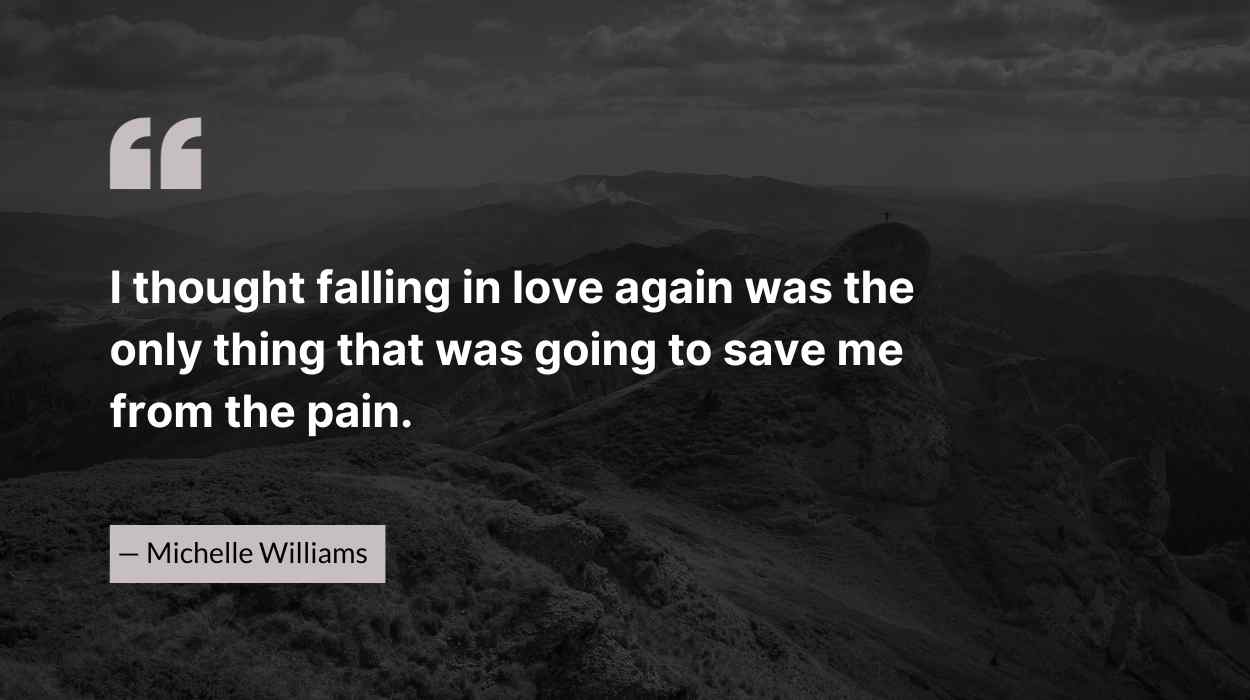
Apollonia Ponti, dating coach, says there is no right or wrong time to start dating for a person who has lost his significant other. “The process of grief for each person is different. So don’t judge a man by how he enters the dating field after he has lost his partner,” she advises. Some people may have been prepared for the inevitable and might grieve less, others might be seeking a new relationship to get over their loneliness.
Men feel very lonely be it after the death of a spouse or a divorce. When dating a widowed guy, it’s best to leave your judgment at the door. Go in with an open mind so that you can embrace who he is and what he has to offer. Whether you’re dating a young widower or someone older, don’t presume what brought him back into the dating game. Questions like these will only color your judgment and make you view him from a narrow lens, so steer clear of them as far as possible:
- Is he dating because of missing physical intimacy after the death of his spouse?
- How could he be looking to date so soon after surviving the death of his wife?
- If he got over the death of his spouse so easily, what kind of commitment can I expect from him?
Related Reading: 11 Expert Tips To Have A Successful Second Marriage
8. Communicate well
The only way to understand his dating goals and expectations is by communicating well:
- To build a mutual understanding, do not hold back from expressing yourself and asking the right questions
- Keep the channels of communication open (more so if you feel insecure or jealous)
- Talk it out to know the extent of his feelings for his deceased spouse and his feelings for you
Don’t just let the whole thing fizzle away without an open and honest conversation. Communication is the key to resolving most issues and deadlocks, and dating widower problems are no exception. Prioritize fostering honest, open, and unbridled communication in your connection; it will help cement your bond. When I began feeling insecure about my place in his life, I initiated a calm conversation. This openness not only eased my doubts but also encouraged him to articulate his commitment and boundaries more clearly.
9. Befriend his children
When he introduces you to his children, make every attempt to befriend them. If marriage with the widower is on the cards, then it’s time to start working on your relationship with potential stepchildren. Now, this can be a delicate situation, and you have to be prepared for both hostility and openness. At no point should you insinuate that you’re going to take their mother’s place. That can backfire, putting your relationship in jeopardy.
Maintain a delicate balance. Meeting his children was both challenging and heartwarming. I found that small gestures—like joining them for a board game or simply listening to their stories—helped break the initial ice and build mutual trust over time.
10. Handle his former in-laws carefully

Handling his children is one thing, but if the family has been close-knit, it’s quite possible that he would still be in touch with his deceased wife’s family. While his association with them might be a comforting factor for him, the same cannot be said about their equation with you, unless they welcome you wholeheartedly. When I attended a family gathering with him for the first time, I sensed subtle tension. I realized they saw me as an outsider, so I focused on building a rapport and eventually became close with them. Keep the following things in mind to ensure healthy family dynamics:
- You may choose to distance yourself from this extended family if you are uncomfortable
- Unless there is open hostility on that front, try to make an effort to at least have a pleasant association with them before giving up
- It’s understandable if you’re feeling insecure when dating a widower who still treats his deceased wife’s family like his own
You can feel like an outsider and second-guess your place in his life. However, if he is taking the step of introducing you to his loved ones, it’s a healthy sign a widower is serious about your relationship. He is prepared to let you into his life wholeheartedly and wants you to be a part of his innermost circle. Sometimes, changing your own perspective of the situation is all it takes to navigate the twists and turns of how to date a widower.
11. Don’t hesitate to seek his help
If the two of you are planning to take your relationship to the next level, do not hesitate to seek his help and advice in building a rapport with his family and children. It is his responsibility as your partner, too, to get you to be more comfortable around his family.
Work on it together with a sense of compassion and sensitivity, don’t do it alone. Young children can put up greater resistance to the idea of someone else filling their mom’s shoes (even if that is not your intention, it can be hard to explain that to a child). You’re going to need your partner’s unflinching support to get through this, so don’t hesitate to ask for it.
In my case, I often had to ask for his advice when navigating sensitive conversations with his children because he knows their likes, dislikes, and pet peeves far better than I did. Letting him take the lead allowed me to slowly and gently integrate myself into their lives.
Related Reading: Second Marriage After 40 – What to Expect
12. Get to know him better
There is one big advantage of dating a widowed man, says Apollonia Ponti, and that is the fact that, mostly, they are very sure of what they want. “A person who has seen the death of a special someone is usually clear about their relationship needs. They may want a similar love story, or they may want to do new things,” she explains.
Simon, a 56-year-old former US Navy veteran, maintains that while he is open to dating, he doesn’t see forming a connection as intimate and intense as he shared with his wife. “Even if I get into a relationship, it will be from a distance. I can never love anyone the way I loved my wife. I guess this experience brought me to the companionship vs relationship crossroads, and I prefer the former.”
13. Set realistic expectations and focus on open communication

When you enter a relationship with a widower, especially one who has lost his spouse after years of marriage, his experiences and expectations might be vastly different from yours. Even if the two of you connected on various aspects, imagining a new future might not come easily to him. The grieving process may get in the way, preventing him from forging a strong bond with you. Or perhaps, he may just be at a stage in life where love and relationships mean something entirely different than it does to you.
It’s best if you are realistic about your own expectations. This becomes much more crucial if the age gap is significant. Also, don’t just rely on your perception of his behavior to assess what he wants. Instead, communicate openly and honestly about managing expectations and setting healthy boundaries in your relationship so that there is no scope for ambiguity. For the sake of your emotional well-being as well as his, prioritize effective communication.
Related Reading: 11 Things That Attract A Younger Woman To An Older Man
14. Don’t try to step into his late wife’s shoes
When you are with someone who is dating after the death of a spouse, remember your role is not to fill a void in his life. Also, ensure that your boyfriend isn’t looking for someone to do that. While you can be empathetic to his loss, keep the following things in mind:
- Do not stop being your own person
- Don’t expect him to erase the fond memories of his former spouse and move forward as if she never existed
- Accept that there can be enough room in his heart to miss her and love you at the same time
There may be certain aspects of his life and personality that are and forever will be tied to his deceased spouse. His children, his lifestyle, his beliefs and values, to name a few. You have to learn to build something new with him around these existing facets and not upon them if you want to avoid feeling insecure dating a widower.
As I expressed above, there was a bit of jealousy from my end in the initial stages. I struggled with the fear of being compared to someone I had never met. I remember thinking, “I will never date a widower again.” But over time, I understood that the connection we were building was unique and independent of past relationships.
15. Never talk badly of his wife
Dating a griever is not easy, and it is possible that you might get irritated at times by the inadvertent comparison. He might go back into the past more often than you wish. But even in those moments, never ever make the mistake of badmouthing his former spouse. There would be times when you would have an argument or two, but take care not to bring his past or his deceased spouse into it, as it will only make matters worse for both of you. If you do that, the argument would spell doom for your relationship.
No matter how angry, enraged, hurt, or disappointed you are, never lose sight of how hard surviving the death of his wife must have been for him. Take care to never trigger that grief just to get back at him. Also, remember that you’re not in competition with a person who is no longer around. Instead, focus on your present and your future with him. Dating a bereaved person becomes a lot easier when you’re not constantly looking at him through the prism of his past.
16. Expect intimacy issues with a widower
Once again, it depends a lot on the nature of the relationship and how much time has passed since his wife’s passing, but intimacy can be an issue in such a relationship. Unless the man is completely ready for a meaningful relationship, he might find it difficult to connect with another woman emotionally.
Do not judge him for that, just give it time or talk to him about your true feelings. If these intimacy issues persist, convince him to seek professional help from a sexologist or a therapist, depending on the nature of the disconnect. Dating after death of spouse requires consistent effort and copious amounts of patience. Of course, he has to be willing to meet you halfway, otherwise, you’re fighting a losing battle.
Related Reading: Dating In 50s – 15 Tips To Do It Right
17. Watch out for the red flags
When you’re in a relationship with a widower, you must always keep an eye out for potential red flags. For example, when a widower pulls away from you the moment you talk about getting serious in the relationship, it’s a red flag that he is not ready. Or when you feel he is hesitant to introduce you to his family and friends, he may be dealing with unresolved guilt about moving on. Ignoring these signs could land you in an unhealthy push-pull relationship. Only you can decide how long you would want to wait before he finds the courage to make it official with you.
18. Don’t allow the memories of your deceased spouse to get to you
One of the most common problems that women face is how to react to a person who refuses to erase his late spouse’s presence, be it in the form of pictures or memorabilia around the house. Honestly, you shouldn’t even attempt to. It is totally okay that he wants pictures of his late romantic partner in his house, it does not mean he loves you less.
Monica felt extremely conflicted by the fact that her partner’s home was still flush with memories of his deceased wife. There were photos of them everywhere, and she asked a friend, “Should I suggest that he take down her photos, so that it can truly mean starting a new relationship?”
Her friend, who had also lost her husband recently, warned her against it, saying that even a hint to that effect could threaten the relationship. Monica heeded the advice and made peace with the fact that he didn’t have to erase the past to make room for their future together.
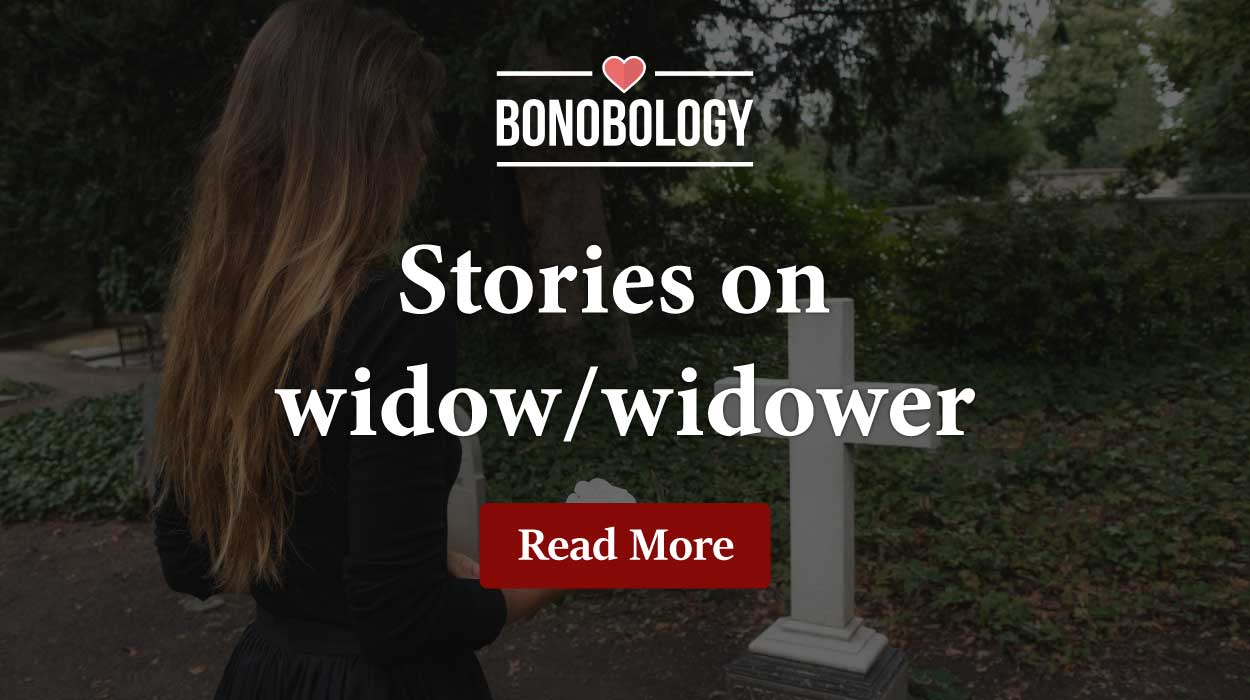
19. Learn to give a widower alone time
No matter how well your relationship is progressing, there may be days or moments when you find your partner slumping into grief. Be aware of these moments and allow him space for mourning. For instance, some dates can be painful,
- The death anniversary
- His spouse’s birthday
- Their wedding date
- Children’s birthdays
Let him know that you are in tune with his feelings. Sometimes, giving space itself can be a lovely gesture during difficult times. If he wants to be left alone for the day or feels like spending time at his wife’s grave all by himself, give him a peck on the cheek and tell him you will be here waiting for him. Or that you’re there for him, if and when he wants to share his feelings with you.
Don’t take his emotional investment in the past as an affront to your partnership. The two can be independent of one another (provided he maintains a delicate balance). Just because he has you to share his life with now doesn’t mean that he can erase the memories of the past. You can’t compete with a dead person, nor should you have to. You get to share your present and future with him, whereas what he shared with his wife is already in the past. So, don’t let insecurities get the better of you.
Related Reading: 12 Signs Of Unconditional Love In A Relationship
20. Ask some important questions
If you find yourself falling in love with a widower after a period of serious dating, yet are not sure where you stand in his life, do not hesitate to find out your status. It’s best to have the seemingly awkward or difficult conversations early on rather than keep ignoring the proverbial elephant in the room. Relationship coach and author Abel Keogh lists three questions to gain more clarity:
- “Do you love me?”
- “Are we in an exclusive relationship?”
- “Where is this relationship going?”
Sure, dating someone with emotional baggage can be different from other relationships you’ve had, but you still need to know where it is headed and if you’re both on the same page about what the future holds. Irrespective of how he feels about it, don’t hold yourself back from broaching this topic once you’ve been together for a considerable time
After months of dating, I mustered the courage to ask, “Where do we go from here?” This conversation, though initially awkward, opened a door to discussions about expectations and long-term goals.
21. Build new memories
If you keep thinking, “I will never date a widower again because it makes me feel inadequate”, know that it’s totally natural to feel that way. To get over any feelings of insecurity, build new memories with your partner. Perhaps he will remember or miss his spouse during special occasions like festivals and birthdays.
Plan holidays and celebrations in a way that does not bring back the painful past, rather it gives you both new reasons to smile. You can build new traditions and customs that are yours and yours alone and don’t have the shadows of the past looming large over them. Perhaps, mix up the Christmas dinner menu a little, or volunteer for a good cause on Thanksgiving. When you make new memories together, the “dating a widower feeling second best” insecurities will begin to fade away.
I made it a priority to establish our own traditions. One of my favorite traditions was baking brownies on our anniversary instead of getting a cake. These new rituals became symbols of hope and a tangible reminder that love can grow alongside remembrance.
FAQs
1. What to know about dating a surviving husband?
Know that you will never be able to erase memories of his deceased wife, you may even find yourself competing for attention, especially if he constantly talks about her.
2. Why is dating a widower so hard?
It is hard because the process of grieving is different for each person. The death of a loved one is a very difficult pain to get over, and depending on the circumstances, a widower may find it difficult to open up or commit to a new relationship.
3. How do you know if a widower loves you?
You can know a widower loves you only if he does not compare you with his deceased wife, makes an attempt to know you in more detail, introduces you to his family, children, and close friends, and is ready to commit to you with his whole heart. However, if he treats you like a consolation prize/rebound relationship and hesitates in spending time outside the bedroom, these are warning signs.
4. What percentage of widowers remarry?
While there is no specific study, there are indications that show that widowers are more likely to get married again as opposed to divorcees. Also, it is said that widowers remarry more quickly than widows. The average time for widowers to remarry is about 2-3 years, the same for women is 3-5 years.
5. Do widowers ever move on?
A widower takes time to move forward. It all depends on how strong his marriage was, but it is in no way an indication that he cannot find a new partner again. He just has to be open enough to give someone else a chance and enjoy the good days without feeling guilty.
Key Pointers
- Dating a widowed man is way more complicated than dating a long-term bachelor/divorcee
- If your SO is a widower, you need to tread lightly, be a good listener, and communicate honestly
- Be patient, set realistic expectations, and don’t try to compete with his past
- Give him ample space and seek professional help if required
- You have the right to walk away if you aren’t being loved in the way you deserve
Final Thoughts
Widower dating requires pretty much the same qualities as dating anyone else—open communication, patience, love, and mutual understanding. However, what makes the experience different is his grief and emotional baggage. Perhaps, it takes a different kind of maturity to steer such a relationship in the right direction, and if you master that, being with a sensitive widower can be a beautiful experience.
Remarriage After Death Of Spouse: A Heartwarming Journey Of A Woman
Your contribution does not constitute a charitable donation. It will allow Bonobology to continue bringing you new and up-to-date information in our pursuit of helping anyone in the world to learn how to do anything.

